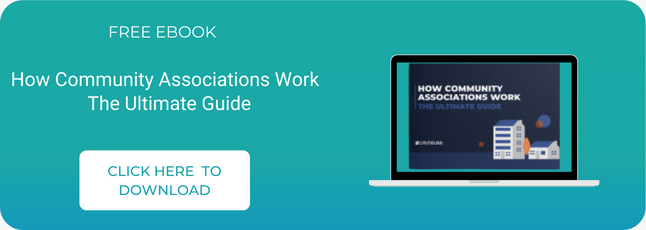Everyone who lives in condos, homeowners associations, and housing developments governed by a board are subject to a variety of HOA rules and regulations. Owners often don’t become aware of a board’s power until they’ve been involved in a specific issue.
Many residents have questions about how far an HOA can go to define details of homeowners’ daily lives.
With that in mind, we’re going to go through the most interesting points that portray the potential for interference and the power that an HOA board has.
What are HOA rules?
HOA rules & regulations are a body of rules that every homeowner needs to follow. They are created to maintain the HOA’s integrity and protect the homeowner’s investment.
Where can you find your HOA’s rules?
HOA regulations are laid out in the governing documents, as well as all applicable laws. The governing documents are the bylaws, articles of incorporation & covenants, conditions, and restrictions (or CC&Rs).
Articles of Incorporation
The articles of incorporation set the name of the HOA, and its status as a non-profit mutual-benefit corporation, and the legal individual who receives the legal notices.
Bylaws
Bylaws layout how the HOA is run, so they layout how the board of directors will govern, and what they are and aren’t allowed to do. For instance, how vacancies are filled, and how meetings and elections are held.
CC&Rs
The CC&Rs state the rights and duties of owners and of the homeowners association. For instance, the boundaries of the common areas & individual lots, and the maintenance responsibilities.
Rules & Regulations
Outside the governing documents, HOAs normally have rules on parking, pets, amenity use, and waste disposal, as well as other rules that manage a community.
Neigbrs by Vinteum empowers maintenance committees to take full control of their responsibilities — from submitting and managing work orders, tracking progress in real time, setting up recurring tasks, and keeping residents informed every step of the way.
🛠️ Everything happens in one place, accessible anytime from your computer or phone.
📢 Request your free demo today!

Most common questions around rules in an HOA
1. Can an HOA board choose when holiday decorations are allowed?
Yes, many associations have strict rules that limit the time frame when holiday decorations can stay up as well as where you can put them.
The idea is to prevent safety hazards and maintain the appearance of the community. Normally December holiday decorations aren’t allowed before Thanksgiving and must be taken down during the second weekend of January.
For other holidays, decorations (including door wreaths) often may only be displayed for the two weeks before and after the holiday.
That means no shamrocks outside of March; no red, white, and blue outside of mid-June to mid-July; and no ghosts and pumpkins outside of mid-October through mid-November.
2. Can an HOA board decide what’s allowed on balconies?
Yes, associations often note that only usual and customary patio furniture, barbecues, potted plants with saucers, and appropriate decorations may be kept on balconies.
HOA rules may specifically state that balconies are not to be used to store personal property (even bicycles, surfboards, and toys) and that no clothing or linens of any kind may be hung from a balcony. In Florida, hanging beach towels can be a frequent offender.
3. Can an HOA regulate signs?
Yes, normally you can’t put up commercial or political signs. Typically all signs made of lights, roofing, siding, or paving materials, as well as those that include painting architectural surfaces are banned.
Signage that is allowed is usually strictly regulated with respect to size and the number of signs (or flags).
Before displaying any signage, even “for sale” or “for rent” signs, it’s best to check with the board or manager to see what’s allowed. You can also look in your HOA’s governing documents to locate the applicable section.
4. Can an HOA Board limit pets?
Yes, some communities don’t allow pets at all, and even those that do usually have rules regulating what their owners must and must not do.
Dogs
Typically, HOA rules regarding pets focus on dogs and aren’t unlike those that would be found in a public park. They could include cleaning up after your dog and keeping your dog on a leash. Tense situations can occur with dogs that bark loudly and frequently when left outdoors or alone, many associations have noise regulations that would cover such situations.
Other Pets
Even if you have cats, the number of cats allowed per household and if they can go outside can also be regulated.
Those who have pets that are considered exotic, like snakes, will certainly want to check to see whether they are allowed in the community.
5. Can an HOA control what colors houses are?
Yes, HOAs normally have Architectural Guidelines that control what colors owners are allowed to paint their homes, as well as what other changes they are allowed to make. Often, you have to complete a form, and the Architectural Review Committee (or ARC) goes through it and decides if the Guidelines allow the changes you want to make, or not.
What happens if I break HOA rules?
If you break your HOA’s rules, then you will be in violation of the rules. That means that the board will take action against you. This normally begins with a warning letter, if you don’t answer, you will be fined. Then it depends on what violation you commit, if you don’t mow your lawn, the HOA may hire a landscaper and charge you for the cost. In other cases, the HOA may take legal action.
What if I don’t like the regulations?
If you don’t like the HOA rules, you have a few options:
- Make a request to your board for variance, using the appropriate form. A variance is when you ask for permission to be an exception to the rule.
- Understand that you’ll be in violation, so you’ll have to pay a fine, which can escalate into a legal issue.
- Petition to change the rules. If other residents also don’t like it, you can request to change the rules, and the board will evaluate.
- Get elected to the board so that you have more power over the rules
- Move out of the community association.
We recommend getting involved with committees or your HOA board so that you have more input on the rules in your neighborhood.
Can the police enforce the community’s rules?
Your HOA’s regulations should be in accordance with local laws, so the police could enforce parking or noise violations. However, they couldn’t enforce landscaping or architectural rules.
Conclusion to HOA Rules
Homeowners and tenants need to be aware of the HOA’s rules and regulations before moving in. When you become a member of an HOA, you must abide by them. So read the governing documents, and understand what the board can control before choosing to live in the community. If you find that the rules are difficult after, then get involved with the board or committees so that you can have an active role in making your community a better place.
Find out more about HOAs with our exclusive guide:





2 Responses
I am trying to find out who owns the dam that’s n Sullivan Creek. I have asked the HOA and nobody has the answer. I live on Creekside Dr. Please if u know the answer please let me know. Thank u
Hi Karen,
Thank you for your comment. Unfortunately, we do not have access to information on the ownership of the dam in Sullivan Creek. We recommend checking local records, contacting local authorities, or asking neighbors for more information.
Have a lovely day!